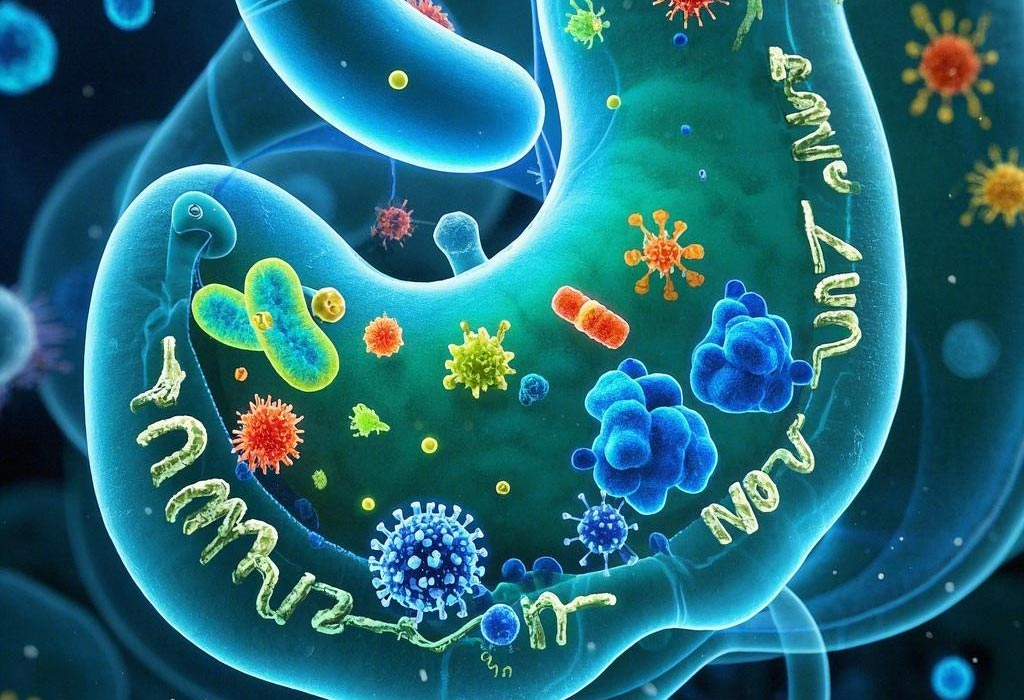For centuries, medicine focused on visible organs—the heart, lungs, and brain. Yet groundbreaking research now reveals that trillions of microbes in our digestive tract, collectively called the gut microbiome, may hold the key to preventing chronic diseases, optimizing mental health, and even extending lifespan. This article explores how scientists are decoding this “forgotten organ” and its revolutionary implications for personalized healthcare.
The Microbial Universe Within
The average human gut hosts approximately 38 trillion microorganisms—bacteria, viruses, fungi, and archaea—outnumbering human cells 1.3:1. First mapped in 2007 through the $173 million Human Microbiome Project, these microbes encode 3 million unique genes (150 times more than human DNA). They perform critical functions:
- Metabolism: Breaking down indigestible fibers into short-chain fatty acids (SCFAs) like butyrate, which reduces colon cancer risk by 40% (Nature, 2020).
- Immunity: 70% of immune cells reside in the gut, trained by microbes to distinguish pathogens from harmless substances.
- Neurotransmitter Production: Gut bacteria synthesize 90% of the body’s serotonin (the “happiness hormone”) and 50% of dopamine.
Gut Dysbiosis: The Silent Epidemic Fueling Modern Diseases
Industrialization has decimated microbial diversity. The average Western gut contains 30% fewer bacterial species than hunter-gatherer populations like Tanzania’s Hadza tribe (Cell, 2021). This imbalance (dysbiosis) correlates with soaring rates of:
- Obesity: Transplanting gut bacteria from obese mice to lean ones caused 60% weight gain in 2 weeks (Science, 2006).
- Autoimmune Diseases: Multiple sclerosis patients show 25% lower levels of Prevotella bacteria, which regulate inflammation (PNAS, 2023).
- Depression: A 2023 UCLA study found 50% of depressed patients improved symptoms after 6 weeks of probiotic therapy targeting Bifidobacterium strains.
Dietary Fiber: The Microbial Superfuel
The microbiome thrives on prebiotics—indigestible plant fibers fermented into SCFAs. Despite WHO recommending 25g daily fiber intake, 95% of Americans fall short. Key findings:
- Diversity Boost: Consuming 30+ plant types weekly increases microbiome diversity by 37% compared to 10 plants (Gut, 2022).
- Longevity Link: Okinawans, with the world’s highest centenarian ratio, eat 17g/day of seaweed fiber—a Bacteroides booster that reduces arterial plaque.
- Fiber Paradox: Sudden high-fiber intake in low-fiber diets can worsen bloating. Gradual increases (5g/week) allow microbes to adapt.
The Gut-Brain Axis: Mental Health’s New Frontier
The vagus nerve—a bi-directional “information highway” between gut and brain—explains why:
- Anxiety Relief: A 2021 King’s College London trial showed fermented foods (kefir, kimchi) reduced social anxiety scores by 32% in 4 weeks.
- Parkinson’s Clue: Misfolded alpha-synuclein proteins, a Parkinson’s hallmark, first appear in gut neurons a decade before brain symptoms (Nature, 2023).
- Autism Link: Children with autism spectrum disorder (ASD) have 25% fewer Coprococcus bacteria, which produce dopamine regulators (Cell, 2023).
Personalized Probiotics: Beyond Yogurt Marketing
While probiotic supplements are a $58 billion industry, their efficacy depends on strain specificity:
- IBS Relief: Bifidobacterium infantis 35624 reduces abdominal pain in 65% of IBS patients vs. 20% on placebos (Gastroenterology, 2021).
- Antibiotic Recovery: Saccharomyces boulardii cuts C. difficile infection risk by 60% post-antibiotics (JAMA, 2022).
- Sports Performance: Elite cyclists given Veillonella supplements (which metabolize lactate) improved 13% in time trials (Nature Medicine, 2019).
Fecal Transplants: Radical Therapy or Future Mainstream?
First documented in 4th-century China for food poisoning, fecal microbiota transplantation (FMT) gained FDA approval in 2022 for recurrent C. difficile infections (94% cure rate vs. 30% with antibiotics). Emerging uses:
- Obesity Treatment: Transplanting lean donor microbiota led to 15% body fat loss in obese rats (Science, 2022). Human trials show mixed results.
- Autism: A 2020 Arizona State University study saw 45% ASD symptom improvement in children after FMT, sustained for 2 years.
- Risks: Poorly screened donors transmitted antibiotic-resistant E. coli in 2019, killing one patient. Strict donor vetting now reduces risk to 0.003%.
Ethics and Future Directions
As microbiome testing kits (199–199–599) enter the consumer market, debates intensify:
- Privacy: Could gut bacteria data reveal predispositions to depression or obesity, impacting insurance eligibility?
- Regulation: The FDA classifies FMT as a drug, while probiotics remain unregulated supplements.
- CRISPR Editing: Startup Novome engineers bacteria to break down oxalates (kidney stone cause), entering Phase II trials.
Actionable Steps for Microbiome Health
While science evolves, evidence-backed strategies include:
- Diversify Plants: Aim for 20+ types weekly (herbs count!). Try 1 new vegetable monthly.
- Fermented Foods: Consume 2–3 servings/day of unsweetened yogurt, tempeh, or kombucha.
- Antibiotic Caution: 70% of U.S. antibiotic prescriptions are unnecessary (CDC). Ask about alternatives.
- Stress Management: Chronic stress reduces beneficial Lactobacillus by 40% (Frontiers in Microbiology, 2021).
Conclusion: Rewriting Medicine’s Playbook
The microbiome revolution challenges traditional disease models. As Stanford’s Dr. Justin Sonnenburg notes: “We’re not just treating human cells anymore—we’re managing an ecosystem.” With 90% of microbiome functions still unknown, this frontier promises to transform everything from cancer immunotherapy to anti-aging research. For now, nurturing our inner microbial garden offers the most democratic form of preventive medicine—accessible through diet, lifestyle, and scientific curiosity.

















